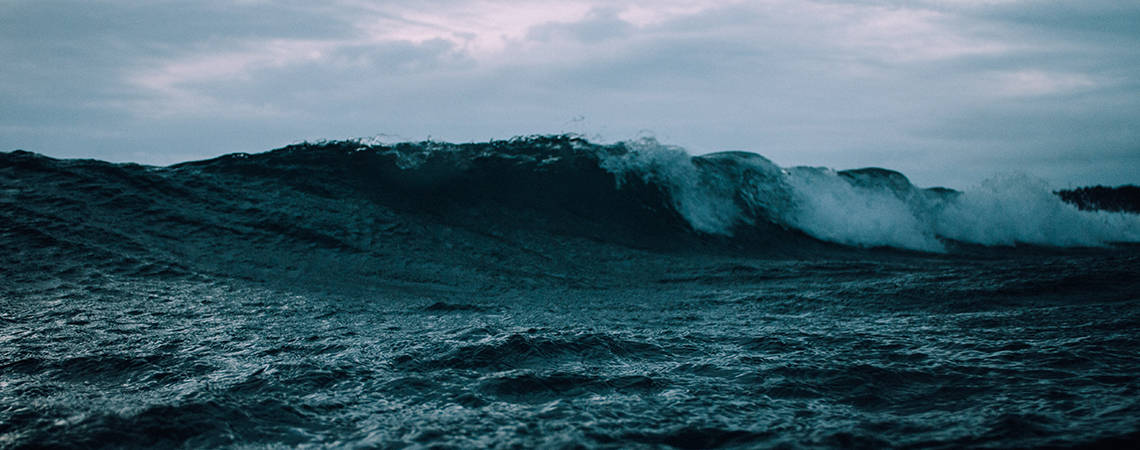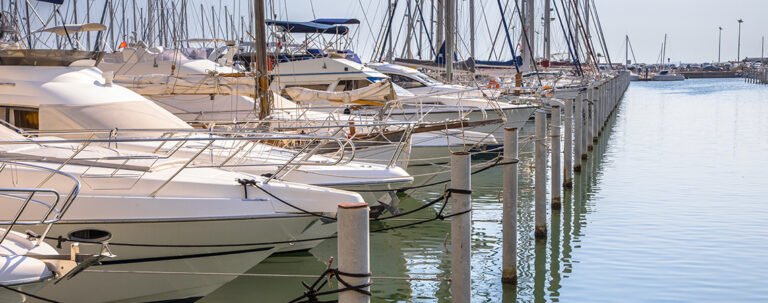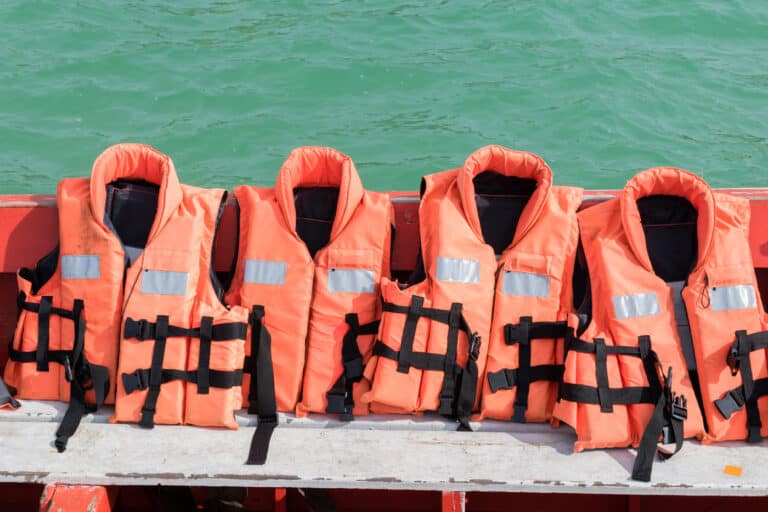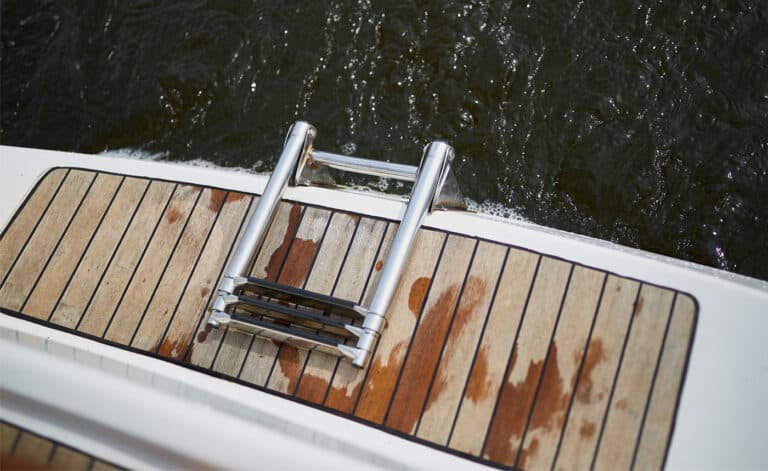“I am ill every time it blows hard, and nothing but my enthusiastic love for my profession keeps me one hour at sea,”
Admiral Horatio Nelson
Admiral Horatio Nelson is widely regarded as one of history’s best naval commanders, being obviously in need of a couple more tips on how to prevent sea sickness. At the time of his famous confession in a letter to a friend we quoted above, Nelson skippered HMS “Victory,” his flagship, a 3500-ton huge man-o-war, significantly less shaky rather than what we feel on a 6-8 ton private sailboat.
Seasickness comes to all of us at sea; that is why it is called so. Seafarers in all epochs and geographies developed methods and remedies to stand the seasickness. Some chewed ginger; some drank lime and nutmeg. You are not the first, and you will doubtfully be the last who feels dizziness and discomfort at sea.
So let’s just find out how else you can be with it.
How to Prevent Sea Sickness – Directions
If you are short of time for a longer article, here is the brief.
The universal measures for preventing seasickness include:
- watching the horizon and far objects, instead of close objects in the cockpit,
- stay upstairs by the reason there are no far objects in the cabin,
- stay warm, eat something, and consider a sea sickness diet, especially ginger.
Yes, there are diet recommendations to avoid seasickness, as the whole story is a little bit more complicated than eating a pill. In addition, there are traditional folk recipes like ginger.
However, these three rules for how to prevent seasickness are universal indeed.

Feel sick just by looking at it? Read on; you will learn more about how to avoid seasickness.
What is Seasickness?
Seasickness shares a broader definition with carsickness, airsickness, and roller-coaster effects, as everything of the kind is called officially “motion sickness.” It results in continuous sickness in the stomach, nausea, and rarely headache and culminates in a throw-up in the apex.
Motion sickness includes the disturbance of the body’s balance system, including the inner ear, responsible for processing sound and balancing information. The inner ear detects how you are positioned to the gravity vector, and that is how your body knows what to do when you need to balance, for example, merely walking.
So the brain accepts signals from the inner ears, muscles, joints, and eyes and puts them together to form the reaction. Once the pieces of incoming information from the organs conflict with each other, the brain has no certain decision due to confusion, making you feel sick. We are not a medical encyclopedia, yet seasickness works somewhat this way.
Basically, you need to fix as many of these misleading feelings as possible.
For example, when you look far at the horizon, you decrease shaking information coming from the eyes (compared to what you see when observing close objects).
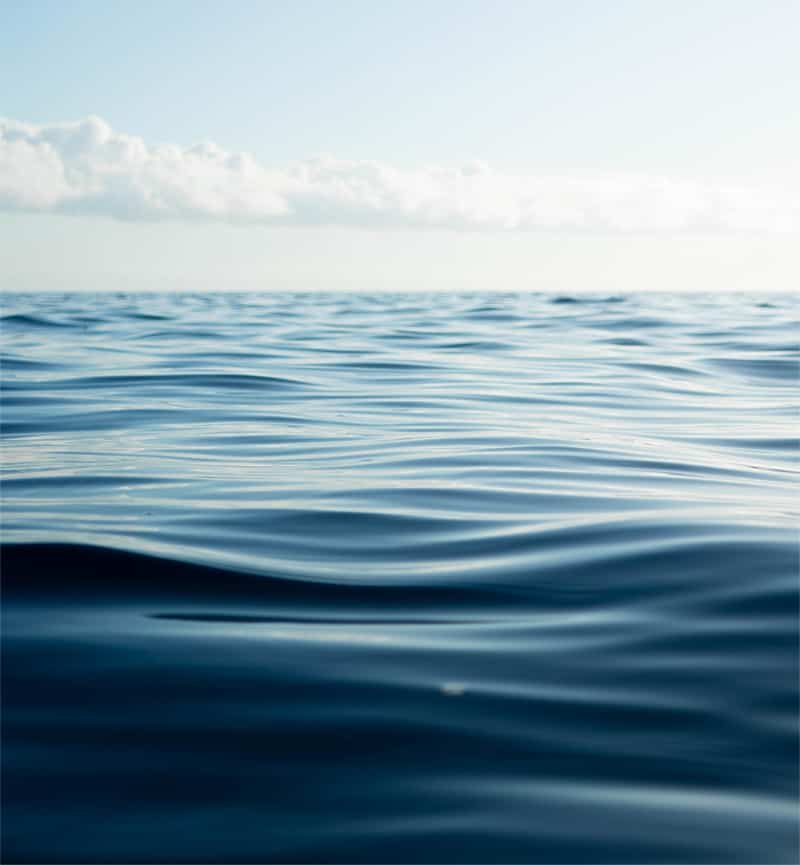
What Does Cause Seasickness on a Boat?
The boat’s movement is unusual for your body compared to your terrestrial way of life. Even though the sea is flat and the wind is calm, the boat still makes a lot of movements in all directions.
That includes the chaotic micro-movements – this becomes sufficient for the body to get tired quickly and the balance system to be disturbed. But when it blows harder, the situation deepens.
Tiredness
Chances of being seasick are greater when you are tired. On a boat, you may not feel tiredness as accurately as on land for the same reason – things are unlike what they are on land, which distracts you. But when you feel tired, it is more likely “deadly tired” already, while seasickness strikes before you reach this point, somewhere in the middle.
For example, when you stand or sit still on land, such is still factually for your body. But when you sit still on a boat, your spine and legs constantly perform small movements to adjust to the ever-changing orientation of a boat, where the deviation is measured in centimeters.
The abnormal situation you do not recognize soon enough, then it leads to exhaustion. Muscles controlling the spine are the first victims – once you feel any discomfort there in the back. Still, your spine is normally fine and relatively healthy, which means you are getting tired.
The other reason may be that the body works in “extreme” conditions. Therefore it neglects to send tiredness signals just to pull it on. But in the end, you are exhausted.
The same happens when you are exposed to freezing temperatures for a while, then relax next to a fireplace. Tiredness avalanches you suddenly then. Likewise, when you are in some sporting event, you feel all pains after, and not during.
Boating suggests relatively extreme conditions, and you’d better act accordingly. It’s good to know how to overcome the discomfort of seasickness, helping your body with knowledge, less with medicine, I think. Tiredness is among the most common reasons for the worst cases of seasickness, as of my personal experience.
Cold
Cold catalyzes seasickness. The cold makes you tired quickly, while you get tired on a boat quickly even without feeling cold. It’s the same thing again: the unusual boating conditions may play a bad joke, and you feel chilling much later than it starts.
Don’t be like, “I have hunted a polar bear once, I do not feel cold” – it’s a no!
Keep yourself warm and even warmer in the beginning stage of your boat adventures.
Hunger
Whatever logical may seem the expectation that having nothing in your stomach saves you from throwing up, you should not cut the energy in your body doing so.
Feeling seasick, try to be eating something, but carefully. Alike with any other sickness, you probably have a reduced appetite and a preference for specific sorts of food – listen to your body.
However, at sea, you may be tricked into a wrong decision the first few times. The common remedies are crackers, biscuits, fried peanuts, shrimps, etc.
Dehydration
Dehydration is a too loud word for the case, but we speak about feeling thirsty desperately, and this eventually affects seasickness as well. While you are a first-timer, you may feel thirsty later than you would feel it on land.
So drink water periodically; just don’t be shy about it. After all, water shall make things smoother on the way out once you come to that point of seasickness despite all measures (only half-kidding).
Water is essential to regulate the body’s temperature; it helps spread nutrients into cells, making them function well, protects cells from stress, etc. If you cut off water from your body, you worsen seasickness.
Just drink fresh water while you are onboard.
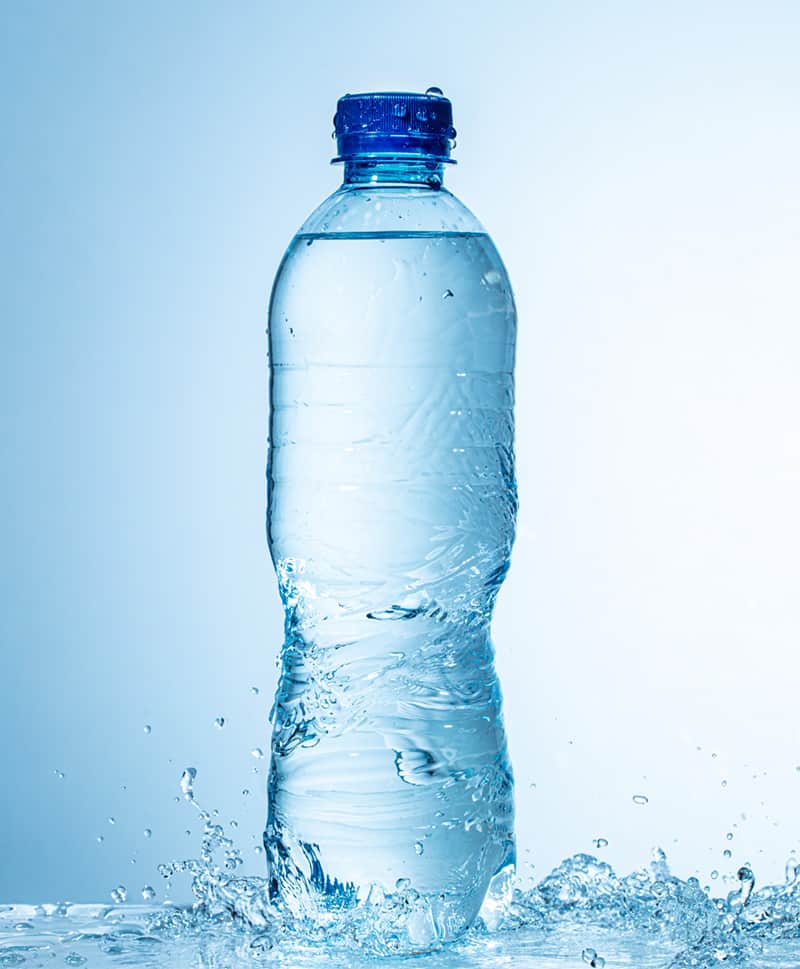
Foreign Smells
Foreign smells, I mean unpleasant ones, may add to seasickness badly. Like diesel smell, for example, or a smell of the interior materials, if they are not wood but plastics.
In this regard, a motorboat is a double disaster, as it makes extra shake due to vibrations from the motors and delivers a lot of diesel smell. Practically, there’s no way out but to stay on the upper deck.
How to Avoid Sea Sickness While Sailing
So your body is in discomfort, seasickness affects you negatively, and you need to do something about it. The medicine and pharmacy progress well; you can fix everything by just taking a pill.
However, by taking a pill, you are not removing the source of the problem because it is likely external this time. You add no heat to your body, and you add no water, no energy, no nothing.
As soon as you are into sailing, you’d better understand the source of your problem and learn how to fix it. Otherwise, you can hardly cross an ocean on anti-seasickness pills. That’s insane.
Fixing Seasickness While Sailing
- Take a good rest before you go sailing: long naps and good food all days before sailing may take half of the seasickness probability. On a boat, you get tired even when doing nothing. That is because your spine and other muscles work more than on land, constantly performing small movements. So keep your energy once the sea is not too flat.
- Drink water as you may need it before you feel really thirsty. Your brain is already busy deciphering the inputs of “conflicting information.” This is a personal experience; just drink water or juices periodically.
- Apply a diet:
- Eat biscuits and crackers.
- Eat seafood and fish.
- Eat salty thingies, like peanuts, yet not a whole kilo.
- Avoid animal fats for a while – steaks add to seasickness drastically, I tried. I think this type of food sucks away energy for processing, while the energetic effect comes in a few hours, totally not like biscuits or shrimp. Delay animal fats till you are at anchor.
- Pasta is good, as of personal experience, if well-cooked. Making seafood pasta kills two birds with one stone: you deliver pasta (of the same nature as biscuits), and you take shrimps. And this is still the fast and economical dish that fits for cooking onboard. Many single-handed sailors praise pasta.
- Once you are a seafaring gourmet, consider a shrimp cocktail as a seasickness remedy. Making it with a spicy source based on black pepper, rosemary, or anything containing caryophyllene naturally – will help to resist cold greatly. Pandas do so, by the way.
- You need to munch something to help your body by adding energy fast but not taking it away; the line is very thin, though.
- Watch the horizon or any most distant objects. By doing so, you trick your mind into accepting that it is shaking less because the distant objects visually are not shaken in your sight. This is the most efficient tip of all, and it always performs!
- Do not go downstairs into the cabin for the same reason: there are only close objects in the cabin, and you will be surprised how fast seasickness shall perform its worst scenario once you try to hide in a cabin.
- Add warmth. Put on something extra, hide from the wind, or minimize it.
- If you can choose a boat (for example, avoiding seasickness when chartering), then you should keep in mind, that a longer boat is heavier – it means less shaky of wind and waves. Hunter 39′ weighs 8 tons, while Hunter 49′ weighs 14 tons. The huge difference of 6 tons is 1.5 times greater than a whole displacement of a smaller Hunter 30′ – 4 tons.
How to Avoid Sea Sickness While Fishing?
Technically the preventive methods stay the same as those you’d use to avoid seasickness while on a sailboat or a motorboat. Maybe the activity defines the difference – then you focus more on keeping yourself warm from the beginning, also avoiding any other physical discomfort.
How to Prevent Seasickness on a Cruise?
The cruise ship is the simplest case of fighting seasickness and the hardest one. If you are a sailor, you practically know what to do or just have got your knowledge refreshed from this article. Still, if you are a “civilian,” you suffer seasickness for nothing, and it was not your choice to be seasick. So let me help you with it.
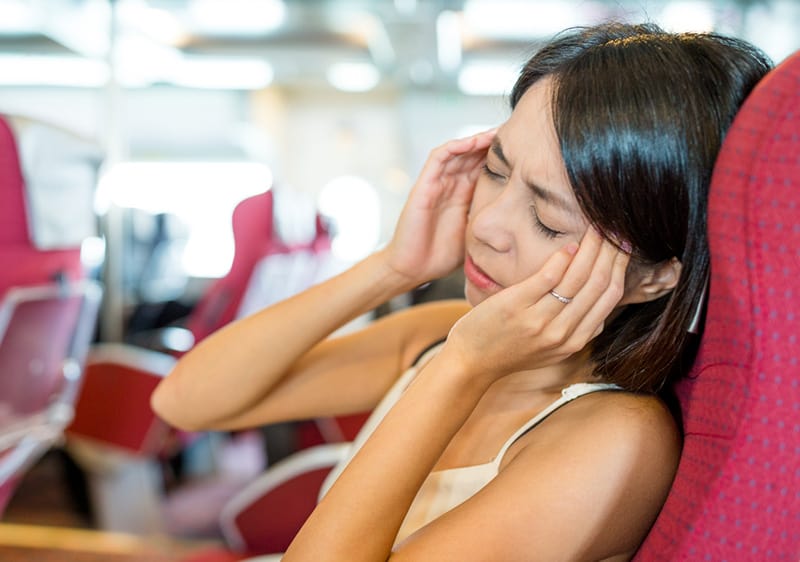
The ideas stay the same as we described above – stay tuned, preserve energy, and no tiredness. Cruise ships provoke you to climb all around because it’s cool over there, and it forms a common mistake to get tired within the first two hours. Take a nap once you feel early symptoms of seasickness.
Go to the upper deck to watch the horizon, do not forget to wear warmer clothes. The diet you can control onboard a cruise ship, and you are adding black pepper, remember?
What is hard to avoid on a cruise ship or ferry is the foreign smell. This one may spoil your whole anti-seasickness enterprise! If you know you break easily into seasickness, you do not charter motorboats as they deliver terrible diesel smells all the time, and they vibrate.
But for the cruise ship, I have no bulletproof idea where to hide from the smell on a cruise ship except that you take a giant shot of strong alcohol and go to sleep – taking rest. More important – humans do not feel smells while asleep physiologically.
Best Seasickness Remedy so Far?
If you feel so hard of seasickness, it may take time till you find your best remedy to be with it. You may have pills to ease it until you find your way. Only for the sake of the general safety of your ship, your passengers, and yourself.
Dramamine
Dramamine is available over the counter as an orange-flavored chewable pill. Read the directions on the package, and I think you need to take one in advance for better effects, then periodically.
Once you realize how seasickness works for your body, you can survive without any “wicked pills”, because your body is stronger than you think.
Of course, you know, you are already at sea.
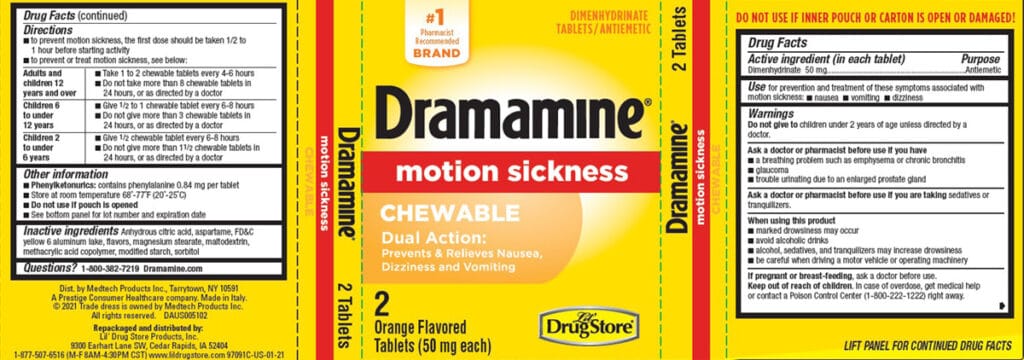
Ginger Root
Dr. James Duke of the US Department of Agriculture, who is also famous for his efforts on medicinal plants, once suggested:
“Legend has it that commercial fishermen at sea would chew on a slug of ginger root to ward off decidedly unprofitable bouts of seasickness.”
Dr. James Duke, US Department of Agriculture
In 1982 in Ohio, the scientists of Brigham Young University and Mount Union College empirically proved the legend was true. They did it with all their scientific stuff, we shall not get deeper into it, but we say the results. The experiment indicated better efficiency than Dramamine for some of the volunteers in the group.
In 1986 in Denmark, the researchers of Odense University continued the experiments, this time trying naval cadets yielding the same results – a drastic reduction of symptoms of seasickness within the whole group:
“Laboratory studies are well and good, but the real truth //about seasickness// is revealed only on the high seas. So that’s where the Danes went next //with ginger// – to 80 green naval cadets unaccustomed sailing in heavy seas,”
Washington Post
Seasickness Remedy for Kids
We talk about natural remedies for toddler and child seasickness, as I would not wish to load a kid with dramamine, considering the pill suggests several periodical intakes during the trip.
Neither I want doing it for myself, I prefer ginger as well as all of the advice from this article, which is 100% field tested. But what can a child take for motion sickness?
Bring peppermint sticks and/or peppermint chewing gum to help children onboard, they’ll probably will not notice a sign of seasickness. Do not forget to offer a variety of biscuits along.
How To Prevent Sea Sickness – My Final Words
The things we learn before we know how to prevent sea sickness:
- Keep warm; make yourself warm in advance.
- Stay fresh, do not allow exhaustion.
- Munch proper food onboard (shrimps are yum!).
- Drink something onboard.
You should not be shy about having seasickness or being frozen while all the other men onboard pretend they are a brave polar expedition. There are no heroes at sea; just remember. You feel cold, you wear more clothes, you want to vomit, you throw up. Otherwise is not safe. Simple rules.
For me, alcohol helps greatly. Bumbo is the traditional maritime drink I choose. I only hate to park with it; I’d better take a little of it early on the trip, then a lot when anchored safely.
While watching the horizon offers magical results, as it is useful for covering two aspects at once! One is tricking your brain into believing in stable visual information, no shake – no seasickness. The second is reflected in a modern maritime saying, “watch the bow, not the plotter.”
Also, consider ginger permanently in your cookbook for how to prevent seasickness.
We watch the bow and chew ginger!
